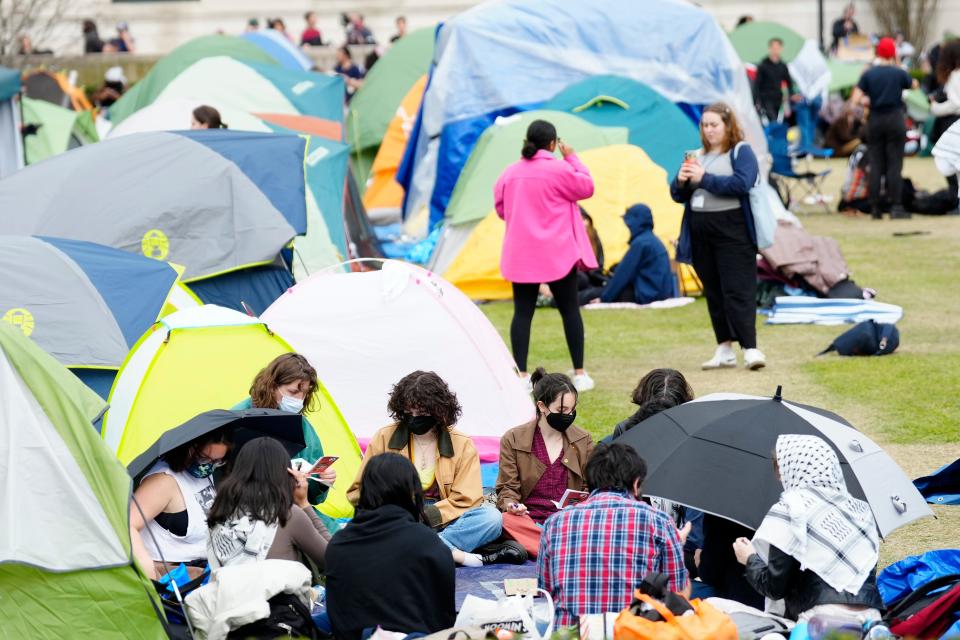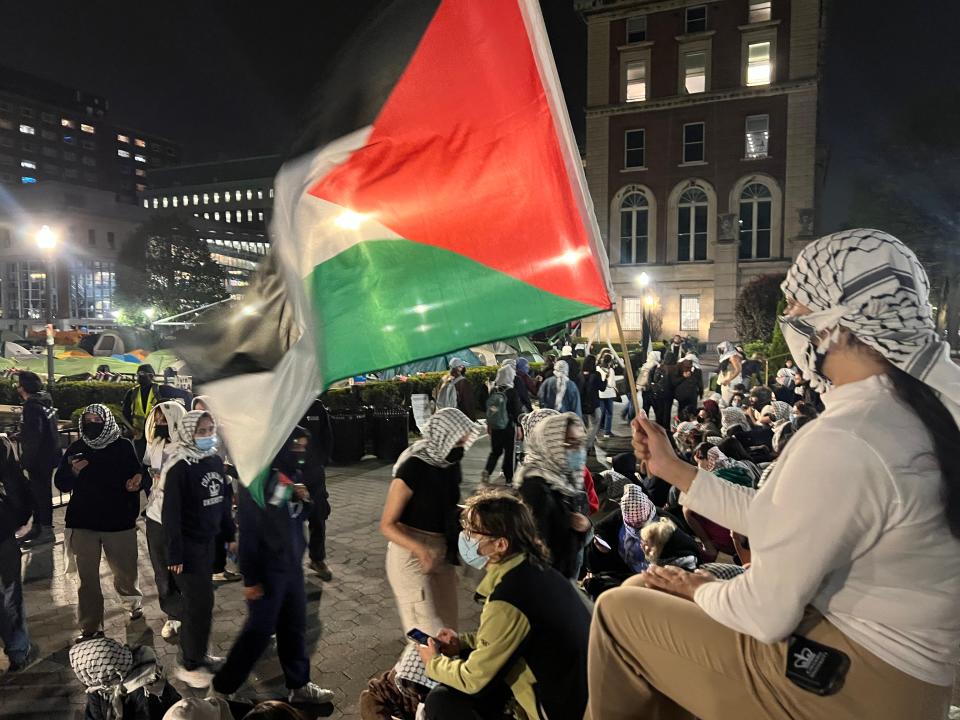Class of 2024 deserves commencement ceremonies despite protests. Here’s one way forward.
Columbia University’s decision to cancel the main commencement ceremony for the Class of 2024 is a terrible blow to a student cohort that has endured so much disruption during its time in school. It is also a terrible precedent to set. We need to model a better path to finding solutions to our challenges, both at Columbia and at universities throughout the country that are experiencing upheaval.
Members of the Class of 2024 have been in campus communities where students are participating in one of the most consequential protest movements in years.
In their best form, campus protests are ignited from a place of empathy for human suffering. Now is the time to show empathy not only for those in the Middle East but also for those who are part of the Class of 2024. Despite everything, these students very much have cause for celebration as they move to the next phase of their lives, and they deserve that important experience of the recognition of their accomplishment.
Many members of the class graduated from high school in May and June of 2020. Because of COVID-19, they were denied high school proms, graduations and celebrations with loved ones. They came to campuses nationwide after having no “admitted student days” and in many cases conducted their first year of classes on Zoom.
Trying to understand the conflict that has unfolded since Oct. 7
While the full history of COVID has yet to be written, a toll was taken on young people who persisted through schooling in the face of loss, only to be denied commemorative milestones.
Many have been trying to make sense of all that has transpired on campuses since Oct. 7; while faculty and administrators may disagree on many things,we hope we are of one mind on what our students have earned: their graduation. We can simultaneously focus on multiple truths: celebration in a time of collective brokenheartedness.

To the extent this generation justifiably questions the competence of many adults in positions of leadership, it would be great to deliver a token of effective management. University administrators and faculty members have, for the most part, already enjoyed our graduations. We need to pay it forward.
One option is a Commencement Compact.
This would be a mutual agreement to create a space for celebrating commencement, setting aside other disagreements for this unique occasion.
Students can engage in a consensus-building process in which they agree on common goals and shared values related to commencement, including a plan of action and consequences in the event of disruption.
Administrators should run tabletop exercises to prepare for all contingencies. Faculty members and administrators must remember they are stewards of education to all of their students, not just the ones who choose to protest and express their free speech.

Why is a compact necessary? These graduates are now once again experiencing or facing the possibility of a canceled graduation. Many students are worried and regularly asking for help to save graduation. The cautionary tale of USC convinces us that cancellation is not a good option. We see the deep sadness weighing down students on our own campus. We have spoken with students across Columbia University’s 17 schools — the campus that ignited this protest moment — and they are worried about what their parents and grandparents will encounter on campus. They fear not being able to hear their names called as they cross the stage, that a special moment will be drowned out by a heckler’s veto or protest chant. For graduates and other students who may themselves be parents, they worry that it may not be safe to hold their young toddler as they cross the stage.
Opinion: I'm a student who was arrested at a Columbia protest. I am not a hero, nor am I a villain.
Why should we deny students the occasion of graduation ceremonies?
Our students’ families have planned to share this important milestone with their loved ones. They have waited a long time to celebrate with them, to beam with pride and snap a photo with their child, grandchild, sibling or other loved one in cap and gown. Many members of this class of 2024 are first-generation college students; many will be the first in their families to receive a college diploma.
Students have family members with disabilities for whom travel is exceptionally difficult, but who are making every effort to join in the festivities. There are families for whom the cost of attending graduation will be a significant financial burden, a sacrifice they make to celebrate this unique moment in their family. Some families live abroad and have complicated travel requirements; others may even have severe illnesses and are looking to this moment to bring joy into a difficult time.
Empathy is not a finite resource. While protest is important, it does not automatically follow that we should deprive students of this momentous occasion for which they have worked so hard and for which many of their families have made great sacrifices. While some graduates may be willing to give up their commencement in protest — and that is their choice — we ask that they not make that decision for the rest of their classmates.
Our class of 2024 and their families will look back on this commencement for the remainder of their lives. We can make this a joyous memory or a source of lifelong pain and anger. We hope campus communities can come together and choose to reserve a moment for joy and celebration.
Rebecca Kobrin is the Russell and Bettina Knapp Professor of American Jewish History at Columbia University. Magda Schaler-Haynes is a professor of health policy and management and of population and family health at the Mailman School of Public Health at Columbia University.
This article originally appeared on NorthJersey.com: Despite protests, college graduates deserve celebration

